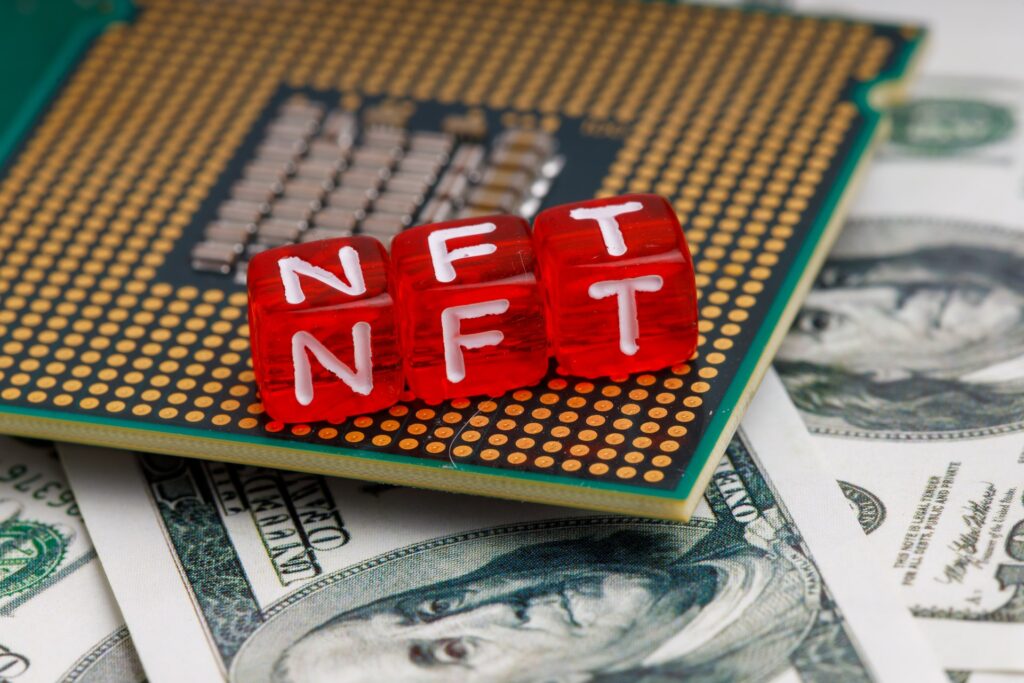NFT taxes are at the forefront of anyone’s thoughts if they are investing and profiting from Non-Fungible Tokens (NFTs).
However, because NFTs are a relatively new innovation, understanding how to pay taxes on these digital assets can be confusing.
Tax laws surrounding them are constantly changing, making it difficult to keep up. This is why it’s important to learn the basics surrounding NFTs and the Canadian tax code.
Here are a few pointers to get you started:
Why It’s Important To Track Your NFTs And Calculate Your Gains Accurately
If you’re interested in buying and selling NFTs as a way to earn money, it’s important that you track your gains accurately.
Why is that?
Because, like anything else you earn money on, profiting from NFTs results in income, which of course means paying taxes. Imagine buying some stock, having the price go up, selling that stock, then not tracking your profit.
How would you file your taxes? You couldn’t, which would get you into some legal difficulties.
NFTs are the same as any investment, if you are making money expect to pay your taxes. This means you need to track your purchases and sales so you have an accurate picture of what’s going on.
Proper tracking is also key for setting aside the right amount of money for covering your tax bill. Because successful NFTs have huge taxable gains, traders often underestimate how much they should put aside for their tax bill.
This underestimation leaves the trader low on cash and unable to pay, forcing them to have to sell their remaining NFTs (or other assets prematurely). Working with a CPA is one way to get around this as they understand how much you will owe, so you can set aside enough cash.
Additionally, it’s important to track your NFTs sooner rather than later — ideally from the start.
The more you trade, the more difficult it becomes to go back and find out what happened. For this reason, you should create a system that helps you to track as you go. This will help you avoid gaps when tax season arrives and ensure you are not paying more than you should be.
Are NFTs Taxed As Business Income Or Investment Income?
There are no clear-cut rules for determining whether or not your NFTs will be taxed as business income or investment income. However, in most cases, it will be considered business income only if:
- You are a day trader
- You run a crypto business
If you do not fall under any of these categories, it will likely be taxed as investment income.
Should you decide to sell an NFT, receive more than $10,000, and choose to deposit it into your bank account, the CRA will have questions. This scrutiny is why you need to ensure you are properly tracking and recording each of your crypto sales.
If discrepancies are found, then you’ll end up owing what you should have paid in taxes plus penalties, and you may run into other legal issues as well. The point is, it’s not worth risking the consequences by not reporting your crypto gains.
Because crypto is viewed as a commodity by the CRA, it’s taxed as either income or capital gains depending on your situation.
How do you know which way you’ll be taxed?
It’s hard to say, there are some guidelines, but generally, the CRA decides on a case-by-case basis how you’ll be taxed.
Some of the factors that come into play are, you conduct crypto activities for commercial purposes, you are trading with the intention of making a profit, you make regular or repetitive transactions, or you are promoting a product or service.
If any of these apply to you, then you’ll probably be taxed as a business. Because of the uncertainty of the situation, it’s important to keep accurate records so you can be ready if CRA has any questions.
NFT taxes are also influenced by the manner in which you are profiting from NFTs.
If you are buying and selling them, then you have a better chance of being charged a capital gains tax. But if you are creating the NFT and selling it, you’ll probably be paying business taxes. The good news about paying business taxes is you can usually reduce the amount of taxes you owe if you can show expenses involved in the creation of your NFT.
What Are Taxable Events?
While buying crypto or NFTs with dollars isn’t considered a taxable event, buying crypto or an NFT with another form of crypto is.
You will also be taxed when you sell crypto or an NFT for a profit. You don’t have to pay taxes on the entire amount you sell your asset for, you only have to pay taxes on the profit, also known as the capital gain.
How A Qualified CPA Can Help
Are you feeling more than a little confused by NFT taxes?
Turn a qualified CPA who has become an expert on NFTs to guide you through the process. In addition to helping you audit-proof your records, they’ll show you how to track NFT gains/losses and advise you on how much to set aside for taxes.
Given how new NFTs are, if you’re investing in them, or creating them, it’s best to trust a professional to help you to deal with any of the taxes you will end up paying.
The professionals at Argento CPA understand both how NFTs work and how these assets work with the Canadian tax code. If you want to confidently track and pay taxes on NFT gains, contact us today.
